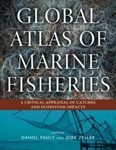![Fisheries, Quota Management and Quota Transfer Fisheries, Quota Management and Quota Transfer]()
Click to have a closer look
About this book
Contents
Customer reviews
Related titles
About this book
This volume examines the impact of fish stock assessment and catch share arrangements in context through case studies and in terms of ecosystem, economy and society. It examines the rationalizing work of bio-economic projects, especially the institutionalization of individual transferable quota (ITQ) in fisheries: what impact have they had on fisheries and fishers? The contributing authors understand ITQ and quota management as bio-economic projects, that is, as widely deployed but locally constituted projects that combine biological and economic logics to rationalize production and, in this case, fish. Politicians and managers use these projects and the models that justify them to rationalize fisheries in favor of modern technology and for capital and species efficiency. Aimed at a diverse interdisciplinary fisheries management readership, and designed as a guide to issues emerging in any assessment of ITQ, Fisheries, Quota Management and Quota Transfer is a timely investigation of the origins and diverse experiences of ITQ projects, including resistance to them, attempts to develop fisheries management around them, and experiences of the risks that come with them.
Now around forty years old, ITQ has never been subject to the kind of comprehensive sustainability assessments once advocated by Elinor Ostrom, let alone the full-cost accounting of impacts at the national level that Evelyn Pinkerton recently called for. Fisheries, Quota Management and Quota Transfer offers multi-disciplinary assessments of the effects of ITQ from scholars working in eight countries. The book brings together scholars from anthropology, economics, geography, sociology, the history of science, and marine environmental history to discuss experiences from fisheries in eight industrialized countries. It considers cases from outside as well as inside the EU, including ITQ pioneers, New Zealand and Iceland. The combination allows for an unprecedented international perspective on stock assessments and share allocation systems. By emphasizing emerging, becoming, learning and transforming through knowledge, Fisheries, Quota Management and Quota Transfer conceives technology as a field of power and choice, nevertheless dominated by managers through specific projects in specific contexts. Individual chapters relate bio-economic projects to separate theoretical literature, an approach that facilitates multi-disciplinary dialog.
Contents
Part 1. Bow Waves and Boat Wakes
Chapter 1. Introduction: Fisheries, Quota Management, Quota Transfer, and Bio-Economic Rationalization
Part 2. Still Waters?
Chapter 2. Fisheries Biology and the Dismal Science: Economists and the Rational Exploitation of Fisheries for Social Progress
Chapter 3. There's Always Another Fish Available - Why Bother About Quotas At All?
Part 3. Leading Edges and Ideal Wakes?
Chapter 4. Context and Challenges: The Limited `Success' of the Aotearoa/New Zealand Fisheries Experiment, 1986-2016
Chapter 5. In the Wake of ITQs in Iceland: A Dynamic Approach of Coastal Communities' Responses to the Privatization of Marine Resources (1991-2011)
Part 4. Displacement, Dissipation and Turbulence
Chapter 6. Transferable Quota in Norwegian Fisheries
Chapter 7. The Swedish Pelagic Fishery in the Wake of ITQ
Chapter 8. ITQs in Germany and Denmark: Is It all About Justice?
Chapter 9. Free Enterprise and the Failure of American ITQ Management
Chapter 10. Approaching Leviathan: Efforts to Establish Small-Scale, Community-Based Commercial Salmon Fisheries in Southeast Alaskan Indigenous Communities
Part 5. Group Velocity
Chapter 11. Conclusion: Surveying the Wakes
Customer Reviews
















![Les îles Saint-Paul et Amsterdam (Océan Indien Sud): Environnement Marin et Pêcheries [Saint-Paul and Amsterdam Islands (South Indian Ocean): Marine Environment and Fisheries]](http://mediacdn.nhbs.com/jackets/jackets_resizer_medium/26/260268.jpg?height=150&width=107)




















